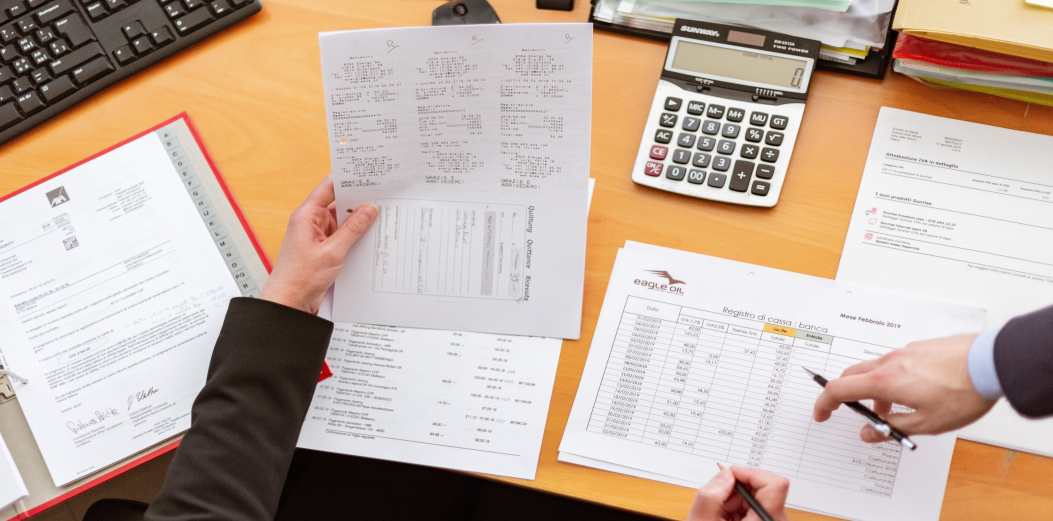6 Common Money Mistakes Business Owners Make
Chances are, you started your business because you’re ambitious, you have big ideas and a clear vision of how your company will look when it’s thriving. While all of these traits are important – essential, even – in a business owner, the nitty-gritty of day-to-day management and attention to unglamorous details can prove just as crucial if your business is to survive through hard times as well as the glory days. Here are 6 common money mistakes business owners make:
First of all, it’s time to stop binning those receipts. Remarkably, over one-fifth of small business owners claim less than half of their expenses, with 25% not bothering at all for amounts of under a fiver. It’s a long, long tax year and those petty expenses can really add up. Being thorough and disciplined with receipts and putting aside time to administrate them can result in a most welcome level of tax relief – saving money that can be ploughed back into the business.
Next, slow down! When starting out, every expenditure should be carefully balanced against its projected benefit for the business. There is a time to scrimp and a time to expand – and smaller businesses with a lower bottom line and higher profitability tend to be stronger than cash-splashing bigger businesses. Likewise, a successful period can inspire dreams of diversifying – but all businesses will ebb and flow, and long-term stability is a better basis for embarking on new ventures.
Those inevitable tough moments can be a real test for a young company, but preparing for the bleak periods can make them far more negotiable than wandering into them blindly. Put aside enough cash to cover two months worth of operating costs and you can buy your business some coping time when things get close to the bone.
Imagine your business is like a bucket – like water, the cash flows into the top. Now imagine lots of small, almost unnoticeable, holes in the bottom. No matter how much cash flows in, your business will slowly but surely lose money through attrition.
If you’ve been running your business for some time, it will prove profitable to put aside a few hours to consider some of the ‘leaky bucket’ cost factors explored in the below, and anyone starting anew would do well to account for these potential money drains in their initial business plans.
1. Overpaying taxes
Every business has a social and legal responsibility to pay tax, but some businesses can overpay simply by misunderstanding the complex tax system or mismanaging their expenses.
Keep track of all receipts and be prepared to put the time in for admin.
2. Being dazzled by the topline
It’s easy to be blindsided by competitors and their extravagant spending, but the bottom line is much more valuable than the revenue at the top.
Always be thinking about profitability. Small businesses operating with higher levels of profitability are stronger organisations overall.
3. Impulse spending
When starting a business it’s easy to be swept away by the excitement of it all – buying a custom-made desk, drinks machines for staff, company cars etc. But before you know it, you’re eating into the bottom line and your profit margin.
Scrutinise every expense for cost-benefit: every euro should count towards improving the business in a measurable way.
4. Diversifying prematurely
After initial successes, businesses generally look to the future. But rather than investing in their own business, some owners decide to diversify before they are ready.
Before embarking on new ventures or diversifying your business modle, ask yourself why you’re doing it and if it’s a good idea.
5. Confusing being busy with being productive
If you think that getting more from your business means running yourselves ragged, your strategy is flawed. Money is earned, or saved, by working more effectively with the resources you have.
Sit down with your staff and address the strategy of your company. look to identify shortcomings and areas where improvements to efficiency and profitability can be made.
6. Not keeping a cash safety net
The reality of business is that cash flow experiences ebbs and flows. This is no issue if you have savings to hand, but if not then one dry spell could be detrimental to your business.
Be strict in maintaining an account balance equivalent to at least two months’ of operating costs. That way, you can weather any rought patches and give yourselves time to turn things around.
Paying attention to the mall details and scrutinising every penny spent is the lifeblood of profitable enterprises. By avoiding these common mistakes you can protect your business’s future and transform it for the better.
Source: business-achievers.com




